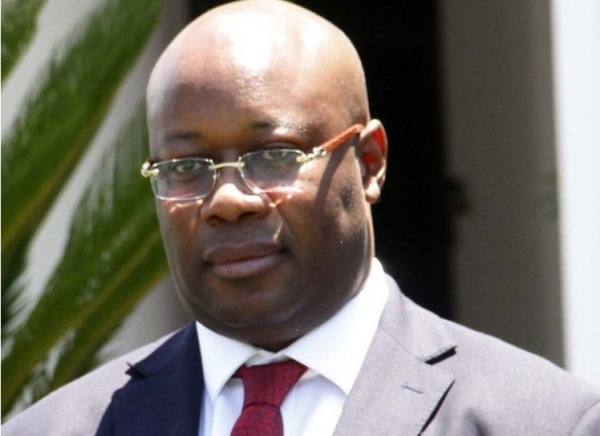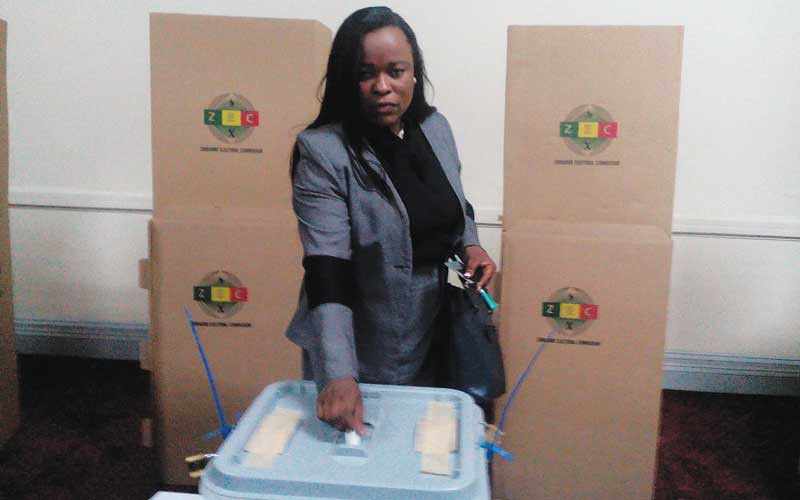
LETTERS TO THE EDITOR
MUTOKO’S Karimazondo and Chingamuka villagers are living in fear after “some” Chinese officials informed them that they would be relocated to pave way for mining operations.
The community members made efforts to seek clarity from the investors and local authorities on the impending relocations to no avail.
The Zimbabwe Environmental Law Association (Zela) has since written to Mines and Mining Development minister Winston Chitando requesting information on the impending Mutoko relocations in terms of section 7 of Freedom of Access to Information Act 1 of 2020 Chapter 10:33.
It is important to note that Mutoko community members have a right to public participation, access to information and the right not to be arbitrarily evicted as provided for in sections 62 and 74 of the Constitution as read with section 4 of the Environmental Management Act.
The country has taken progressive steps by putting in place legislative measures aimed at promoting sustainable development and protection of environmental rights.
In essence, the legal framework also provides for public participation in environmental governance for specified projects through which communities and other stakeholders are consulted as a way of assessing the likely environmental, economic, social and cultural impacts of projects.
In Mutoko’s case, this has not yet been done. – Zela
- Chamisa under fire over US$120K donation
- Mavhunga puts DeMbare into Chibuku quarterfinals
- Pension funds bet on Cabora Bassa oilfields
- Councils defy govt fire tender directive
Keep Reading
Misa happy with issuing of community radio station licences
MISA Zimbabwe welcomes the licensing of eight more community radio stations as this will enhance access to information and exchange of ideas on issues that affect marginalised communities for the government’s attention.
The national geographic spread of the licensed stations is also of vital importance at a time when the country is fighting the spread of the deadly COVID-19 pandemic.
Those awarded licences are Radio Bukalangan (Pvt) Limited, Matobo Community Radio Trust, Chimanimani Community Radio Station Trust, Vemuganga Community Radio Trust, Ndau Community Radio Trust, Twasumbuka Community Radio Trust, Patsaka Nyami Nyami Community Trust, Madziwa Community Radio Trust.
Misa Zimbabwe notes that the awarding of the additional licences comes at a time when those that were awarded the initial licences are still to start broadcasting.
This comes at a time when the media industry in Zimbabwe is generally facing viability challenges due to dwindling advertising revenue, a situation worsened by the effects of the COVID-19 pandemic.
With community radio stations restricted from operating for profit, it is imperative for government to come up with a sustainable policy framework on how these outfits can remain financially viable without compromising their editorial independence, once they start broadcasting.
Misa Zimbabwe also urges government to accelerate the digitisation process which is reportedly being stalled by foreign currency challenges by duly allocating the required funds for completion of the project which is now long overdue.
We further call upon the government to accelerate the review of the Broadcasting Services Act (BSA), an archaic law currently governing the broadcasting industry in Zimbabwe. The BSA is one of the two laws that were targeted for reforms by the government together with the Access to Information and Protection of Privacy Act.
Since government conceded to this process, the proposed Broadcasting Services Amendment Bill is yet to be presented before Parliament.
The Broadcasting Services Amendment Bill seeks to make changes to the BSA which regulates broadcasting services in Zimbabwe.
Therefore, Misa Zimbabwe calls for the speedy review of the regulatory framework in favour of frameworks that stimulate broadcasting industry growth and sustainability.
An increase in the foreign direct investment threshold will increase prospects for investment in the sector, and by extension, contributions to the Broadcasting Development Fund, which is critical for community media development. –Misa Zimbabwe
Inclusivity vital for pension policy formulation
VENDORS Initiative for Social and Economic Transformation (Viset) takes note of the disclosure of diminished contributions by the National Social Security Authority (NSSA) deputy director Tambudzai Jongwe in a weekly newspaper.
According to Jongwe, 1,8 million contributions to the social security scheme have been lost, largely due to the fact that these companies are either in liquidation, have retrenched or have closed shop. This would mean that these former employees are more likely than not seeking financial refuge in the informal sector. By NSSA’s own admission, over 76% of people are in the informal sector, controlling over 60% of the Zimbabwean economy.
It is heartening to hear that NSSA in partnership with the International Labour Organisation (ILO) is working on technical modalities so that they can cover over 5,7 million people in the informal sector by the first quarter of 2022. While we welcome this long overdue move, we are cautiously awaiting to see how the process will be undertaken as we are of the view that consultation with the informal economy representative organisations must precede all other efforts in order to ensure inclusivity and buy-in from the sector.
Part of the issues of concern which we will be keeping an eye on is that in its current format NSSA requires one to have been a contributor for 40 years, yet we all know this is impractical in today’s day and age. Besides, some of the people in the informal economy are former employees who were retrenched, having contributed to NSSA for a many years. The benefit threshold should also be urgently revised, for at an estimated US$35, it cannot even cover the bare monthly essentials, without factoring costs such as medical care. It is our belief that the benefits should be tied to the cost of living estimates in order for them to benefit its recipients.
We believe that there is need for a wholesale revamp of the social security if it is to be relevant to the current economic times and that there must be widespread consultation with all stakeholders particularly people living with disability who have been left out of social security schemes in the past, yet they constitute over 15% of the nation’s population.
Viset commits itself to supporting policy initiatives that are designed with the input and inclusion of all stakeholders, which seek to uplift the lives of people in the informal economy and the restoration of their dignity. Gone should be the days where pensioners continued working because they could not draw any meaningful benefit from pension schemes in old age. –Viset Information











